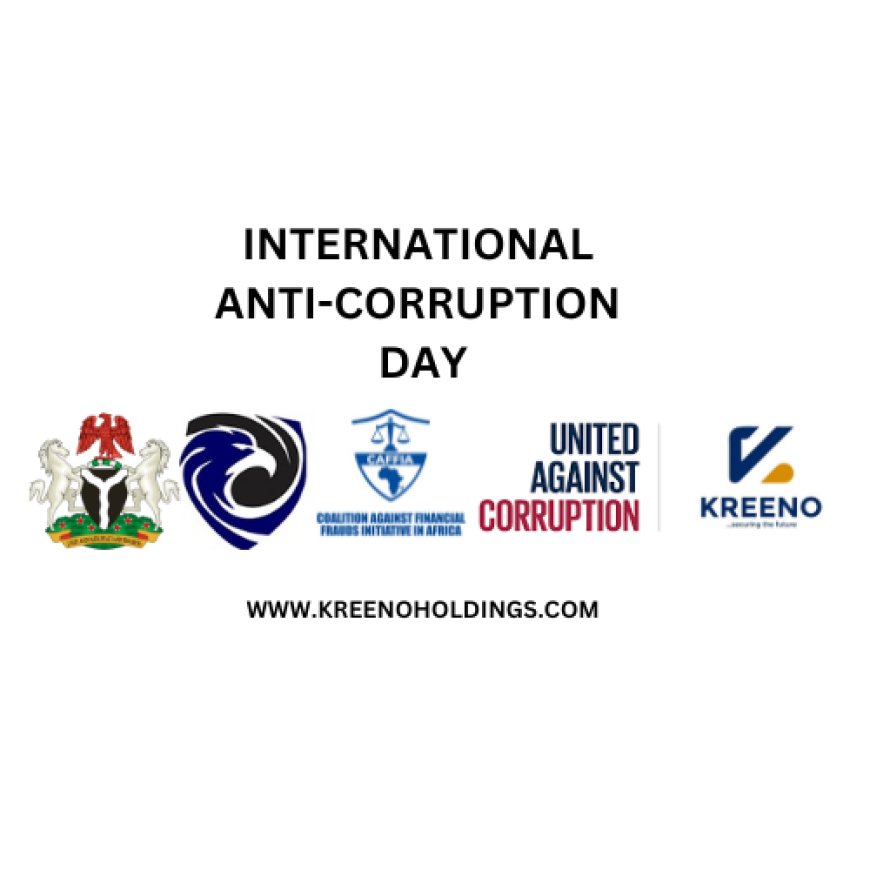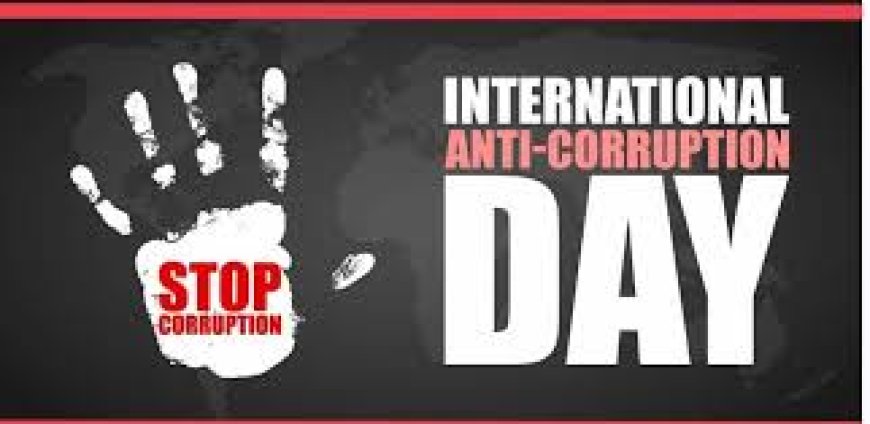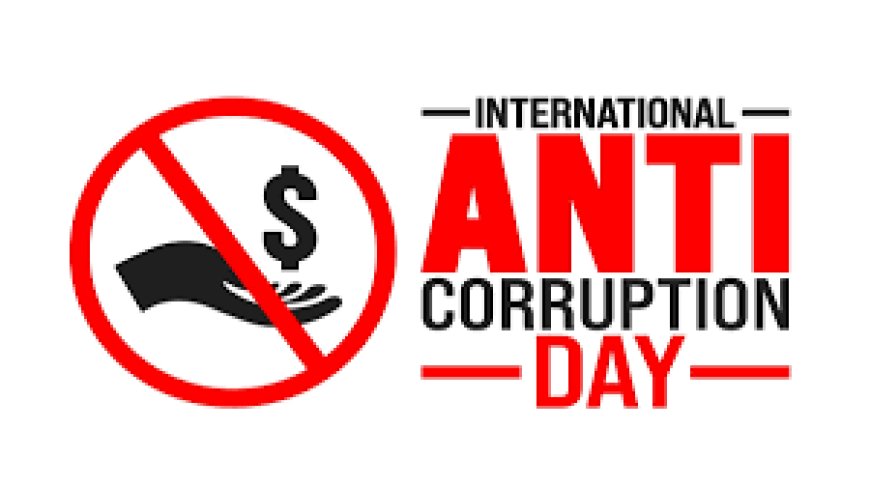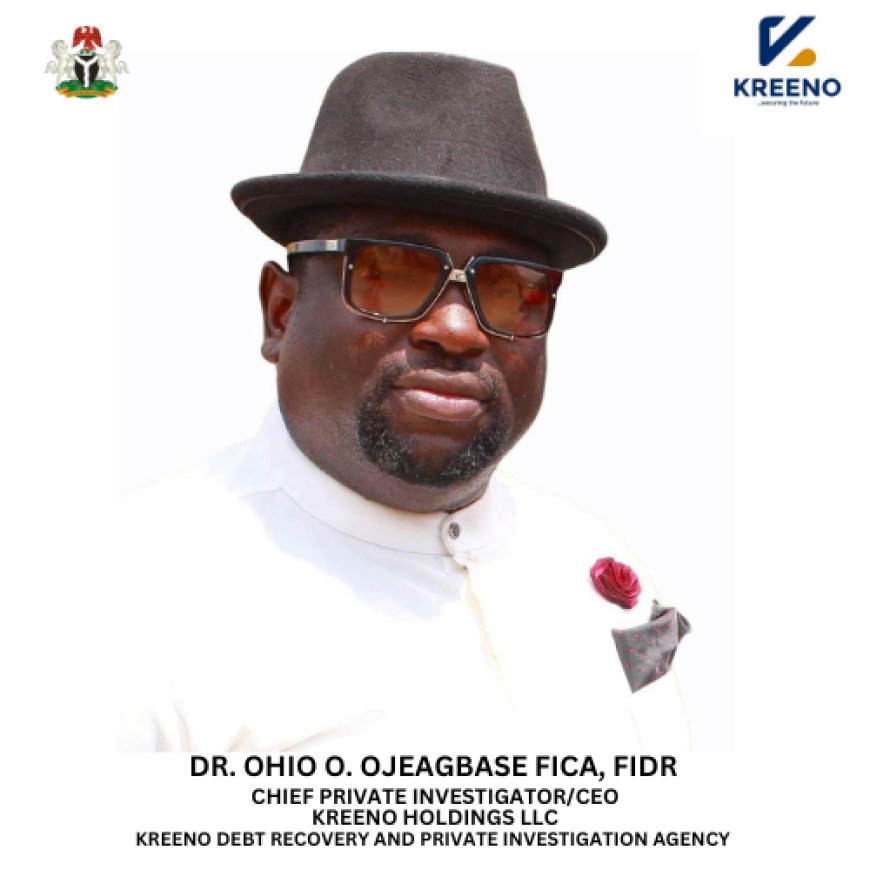Fostering Integrity: The Blueprint for a New Nigeria on Anti-Corruption International Day
Commemorate Anti-Corruption International Day by exploring how fostering integrity, accountability, and ethical leadership can lay the foundation for a new, corruption-free Nigeria.

By Dr. Ohio O. Ojeagbase, FICA, FIDR
As we observe International Anti-Corruption Day, it is crucial to reflect on the state of our beloved Nigeria and the pressing need for integrity in our institutions. Corruption has plagued our nation for decades, leading to a crisis that threatens our very foundations. This year, Nigeria's disheartening score of 25 points on the Transparency International corruption perceptions index places us at a dismal 145th out of 180 countries. This stark reality underscores the urgent need for a collective commitment to foster integrity and combat corruption.
The ramifications of corruption are evident in every sector of our society. Our healthcare system is crumbling, our educational institutions are underfunded and ineffective, and our infrastructure is in dire need of repair. Citizens are increasingly frustrated by the lack of accountability from public officials, and calls for reform are growing louder. We find ourselves at a crossroads where the demand for a revamped electoral system is as fervent as the call for judicial reform as well as anti-fraud reform whihc would come when National Assembly do the right thing and pass the Nigeria Private Investigation Bill into law.
From local councils to the highest levels of government, there seems to be little oversight on executive actions. The legislature often appears to operate under the influence of the executive branch, leading to unchecked power and rampant corruption. Since gaining independence, Nigeria has lost an estimated over $400 billion to corrupt practices—a staggering figure that illustrates why our nation struggles to function effectively due to failed successive administrations.
On this Anti-Corruption Day, we must recognize that the fight against corruption is not solely the responsibility of government officials or anti-corruption agencies; it requires active participation from all sectors of society. Civil society organizations, private citizens, and the youth must unite in this battle. It is imperative that we foster a culture of integrity and accountability that permeates every level of governance and public life.
We must also leverage international frameworks such as the United Nations Convention Against Corruption (UNCAC), which Nigeria ratified in 2004. By aligning our national strategies with global best practices, we can enhance transparency and accountability within our institutions and workplaces. This requires a concerted effort to strengthen existing laws and create new mechanisms that deter corrupt practices and financial frauds even amongst Government officials at all levels who use private sectors to channel this corruption so beit that the best people do not get the deals only those willing to compormise as the contract will always go to the higest bidders.
As we commemorate this day, let us commit ourselves to rebuilding a new Nigeria—one where integrity-in-buisness culture is valued, corruption is actively challenged, and every citizen plays a role in fostering a just and equitable society. We have the opportunity to reshape our future by embracing integrity-in-business especially when money is involved and accountability as core principles in governance and daily marketplaces activities.
In conclusion, let us not forget that change begins with each one of us as citizens of Nigeria. Together, we can pave the way for a brighter future for Nigeria—one free from the shackles of corruption and rich in opportunities for all its citizens. Let us stand firm in our resolve to foster integrity in business in our DNA as we work towards rebuilding a new Nigeria with renewed hope. This article emphasizes the urgency of addressing corruption whilst encouraging collective action from all sectors of society. It aims to resonate more with all and highlighting shared responsibilities in combating corruption.
How can Nigeria improve its ranking on the Transparency International corruption perceptions index ?
To improve its ranking on the Transparency International Corruption Perceptions Index (CPI), Nigeria can adopt several strategic measures aimed at enhancing transparency, accountability, and governance. Here are key recommendations based on recent insights:
Strengthen Anti-Corruption Institutions
- Empower Anti-Graft Agencies: Ensure that agencies like the Economic and Financial Crimes Commission (EFCC), Police Special Fraud Unit (PSFU), Public Complaint Commission (PCC), and the Independent Corrupt Practices Commission (ICPC) are adequately funded and free from political interference. This will enable them to effectively investigate and prosecute corruption cases without fear of reprisal
- Investigate High-Profile Corruption Cases: There should be a commitment to thoroughly investigate allegations of corruption involving politically exposed persons, regardless of their political affiliations. This sends a strong message that no one is above the law
Enhance Legislative Framework
- Pass Comprehensive Anti-Corruption Laws: The National Assembly should prioritize the passage of laws that strengthen anti-corruption efforts, including amendments to existing legislation that address loopholes and ensure stricter penalties for corrupt practices
- Pass The Nigeria Private Invesgtigation Bill into Law: We advocate on this day that the National Assembly should as a matter of urgency pass the Nigeria Private Investigation Bill into law to allow for a legal framework that would allow for a more structured collaboration between experience Private Investigators and public antigraft agencies towards the reduction of corruption in Nigeria. Just like the former President of Nigeria said "If we don't kill corruption, corruption will kill us"
- Promote Transparency in Public Procurement: Implement robust mechanisms to ensure transparency in public procurement processes. This includes making procurement data accessible to the public and establishing independent oversight bodies to monitor these processes
Foster Civic Engagement
- Engage Civil Society Organizations (CSOs): Collaborate with CSOs and the media to raise awareness about corruption and encourage public participation in governance. This partnership can help hold officials accountable and promote a culture of integrity within society
- Support Whistleblower Protections: Establish and promote effective whistleblower protection laws to encourage individuals to report corrupt activities without fear of retaliation
Improve Public Sector Accountability
- Implement Financial Transparency Initiatives: Adopt policies that enhance financial transparency, such as the publication of government financial reports and audits. The Government Integrated Financial Information System (GIFMIS) can be utilized to track public spending more effectively which KREENO can deploy when engaged.
- Strengthen Internal Controls: Public institutions must reinforce internal controls to reduce opportunities for corruption. This includes regular audits and assessments of financial practices within government agencies

Cultivate a Culture of Integrity
- Promote Ethical Standards in Governance: Encourage a culture of integrity by providing training on Integrity In Business for both private and public officials and promoting ethical behavior as a core value within government institutions especially when it comes to handling of money that does not belong to you.
- Encourage Citizen Participation: Create platforms for citizens to engage with government processes, voice concerns, and participate in decision-making. This can lead to greater accountability and responsiveness from public officials. And this is why KREENO is championing an initiative called Coalition Against Financial Fraud Initiative in Africa (CAFFIA) which believe that every across the globe that is an African should be part of as we together advocate for a principled cultured Africa where we are people that display Integrity In Business with all iintents and purposes.
By implementing these strategies, Nigeria can work towards improving its CPI ranking, fostering an environment where integrity thrives, and ultimately building a more transparent and accountable government for its citizens.
By Dr. Ohio O. Ojeagbase, FICA, FIDR
Chief Private Investigator/CEO, KREENO HOLDINGS LLC

Contact: report@probitasreport.com
Stay informed and ahead of the curve! Follow The ProbitasReport Online News Report on WhatsApp for real-time updates, breaking news, and exclusive content especially when it comes to integrity in business and financial fraud reporting. Don't miss any headline – and follow ProbitasReport on social media platforms @probitasreport
[©2024 ProbitasReport - All Rights Reserved. Reproduction or redistribution requires explicit permission.]
What's Your Reaction?







































































































